It is often said that green spaces in our town and cities not only give people the space to relax and rest but is also good for climate mitigation through reducing heat island effects in a world that is filled with so much pollution every single day. National parks, sports fields, gardens and forests in large cities provide shelter not only for humans but birds and animals too.
As Covid-19 lockdowns ease in most places around the world, ‘Statistics from Google show that park attendance in countries across the globe has shot up as people found green spaces – where they exist an unexpected source of peace, calm and joy all around. Being in nature makes us feel good.
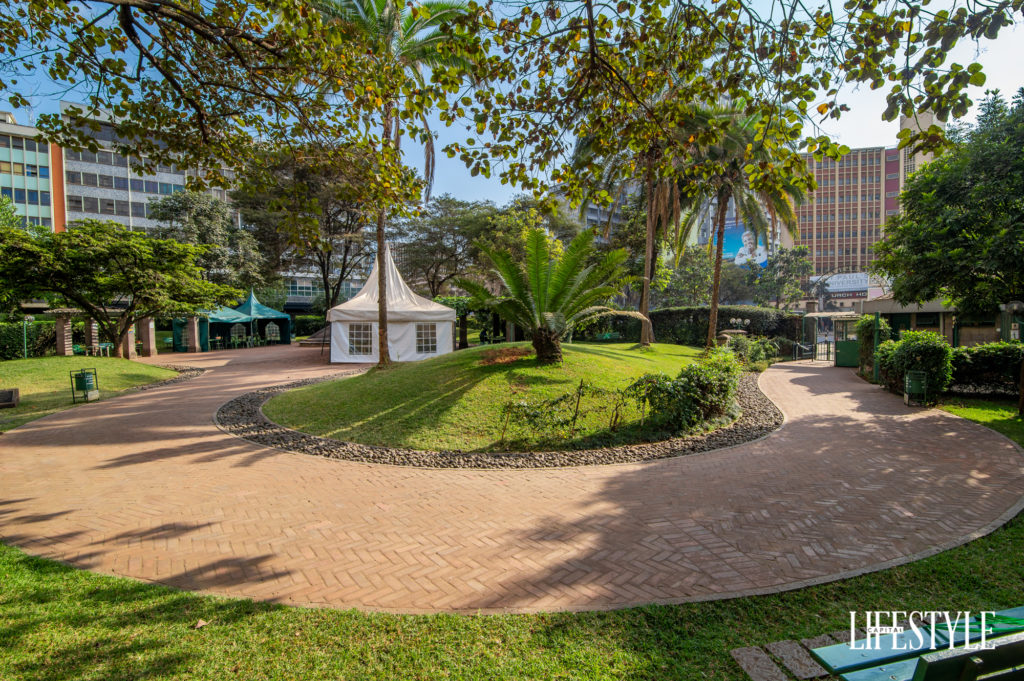
The August 7th memorial park is a unique and serene green space in Nairobi with a history that is forever engraved in our hearts. Located at the intersection of Moi Avenue and Haile Selassie Avenue, it is the site of the 1998 US Embassy bombing which left hundreds dead and thousands injured. What was left behind from that bomb blast of 1998, was destruction of the buildings within and outside where the former US embassy stood. In 1999, the site was donated to the August 7th Memorial Trust, a local non profit organisation who were given the task of developing the site into a memorial park as a tribute to the victims.



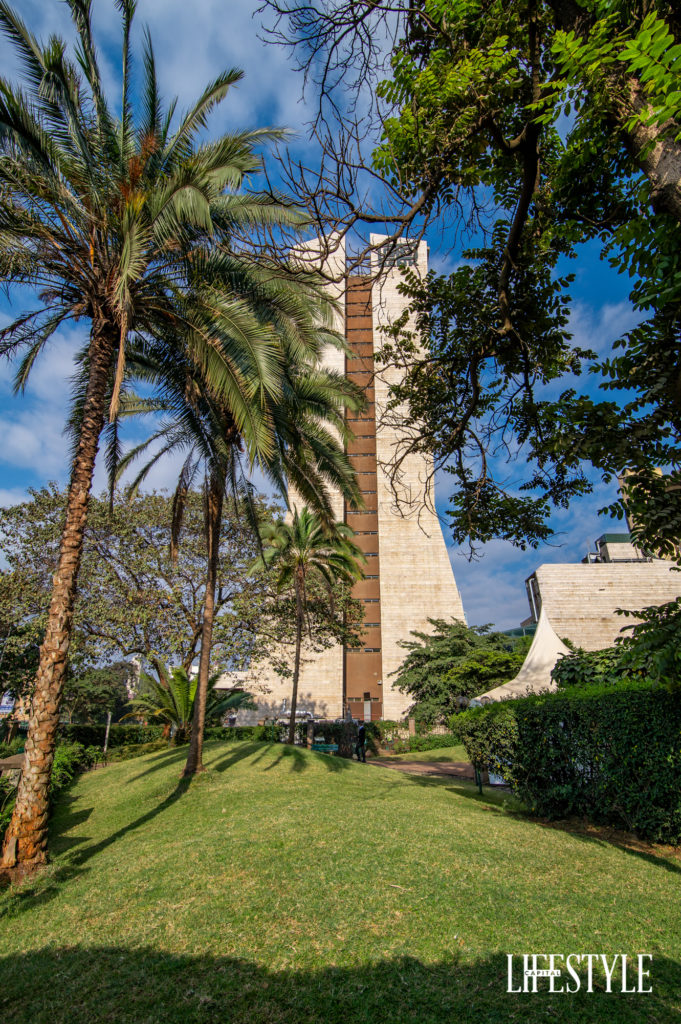

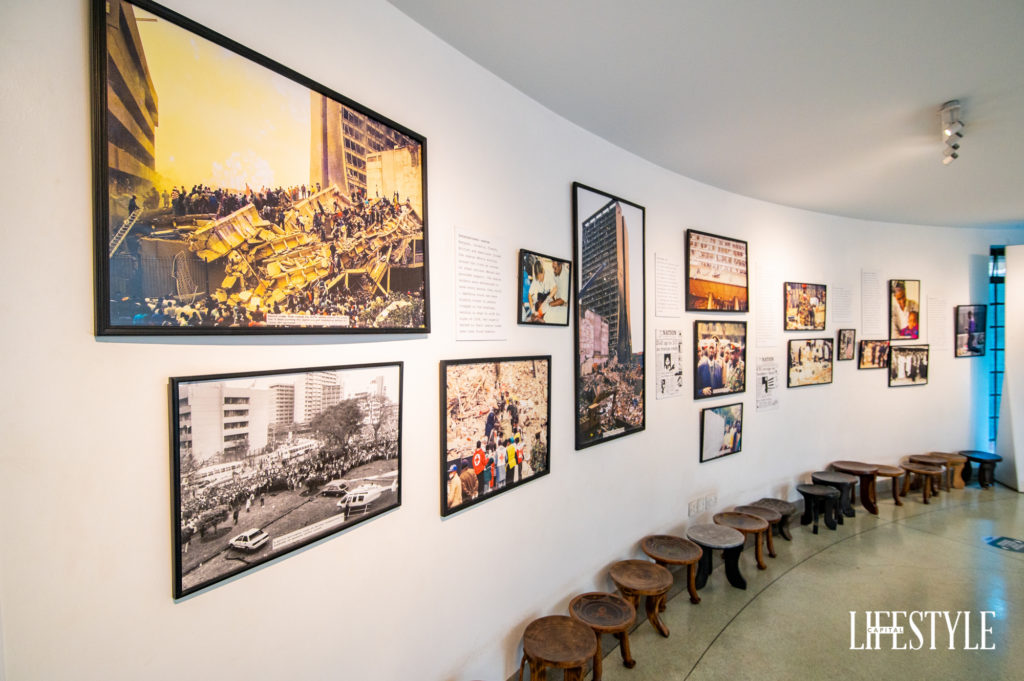

Today, this same site comprises of a beautiful landscape garden, a peace centre and museum, a wall with the names of those who died in the 1998 attack, a sculpture made from the debris of that day and a visitors’ centre. It was also set up to tell the stories of those who survived, as well as of those whose lives were changed forever. The images and exhibits on display in the Visitor’s Centre are meant to educate the public on the appalling consequences of terrorism and sensitize visitors on the need for peace, tolerance and reconciliation.


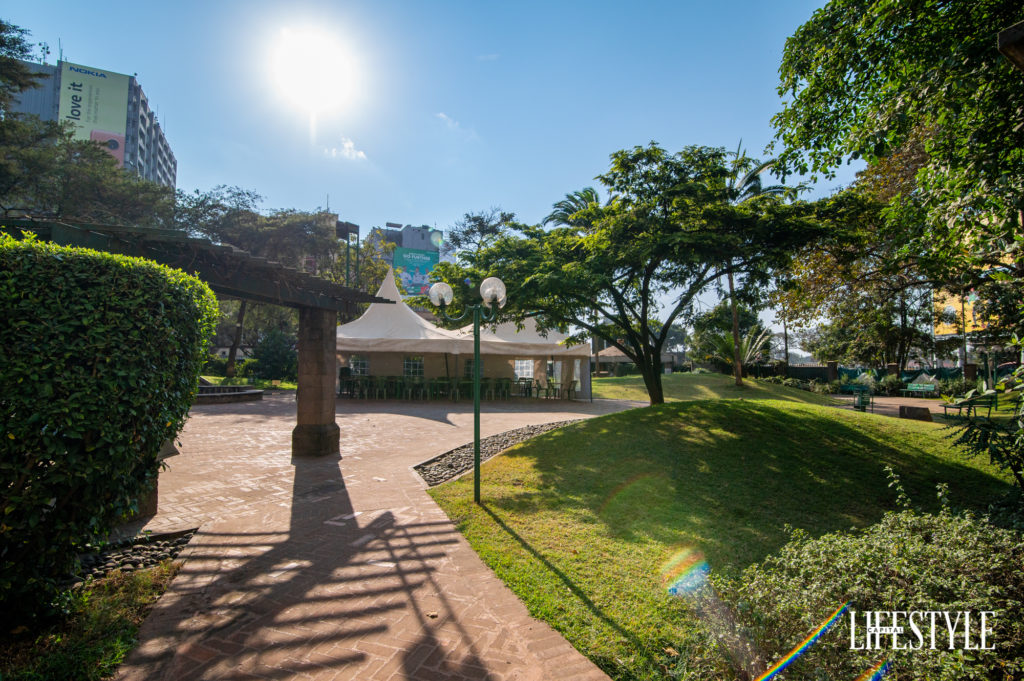
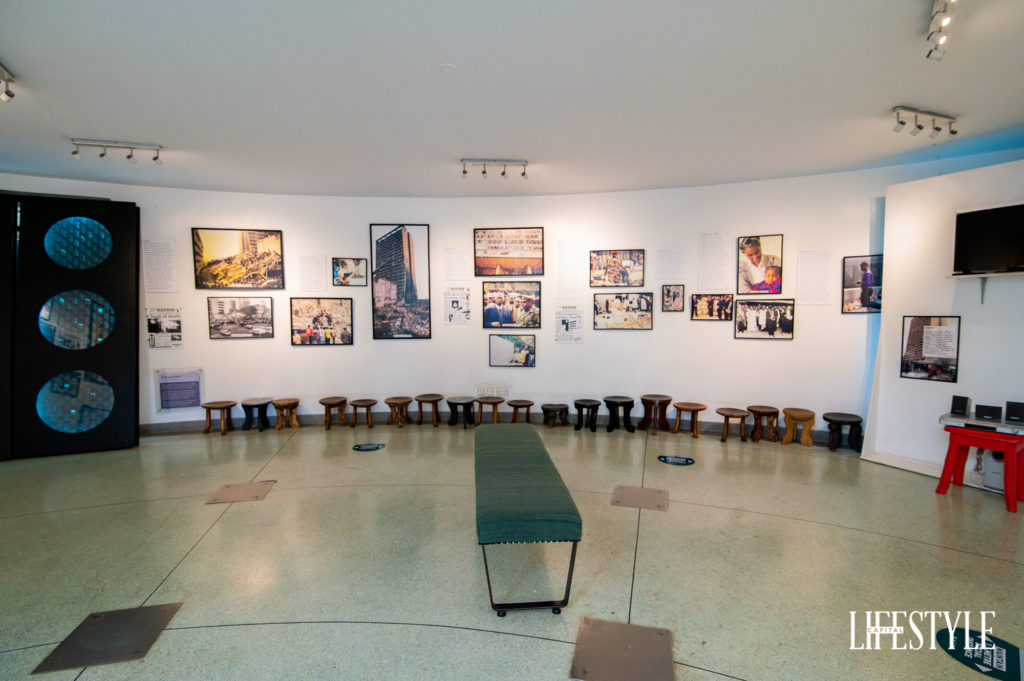
Over the last 20 years, the Memorial Park has become a symbol of Peaceful coexistence and attracts 12,000 visitors every month. It has morphed into one of Nairobi’s must visit beautiful green spaces that plays a crucial role in encouraging both physical and mental health, as well as providing a refuge from the stress of modern urban life. In essence, it represents the kind of green spaces we should have in all our major towns and cities in the country. It is open daily, 365 days in s year, from 7 am to 6pm. A fee of only Kshs 30 is charged at the entrance which goes to park maintainance.






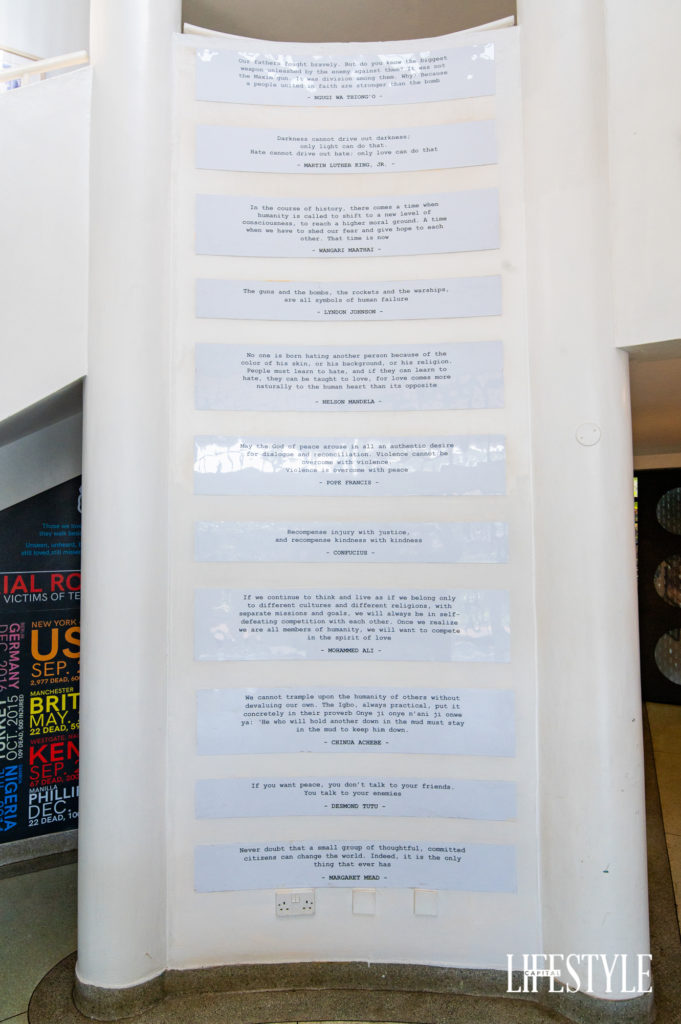


For a city that is currently resembling a concrete and brick jungle, this park is certainly a fresh breath of air. According to recent studies, cities with more green areas boost social cohesion and relations, since they are meeting points to share and create links between city inhabitants.
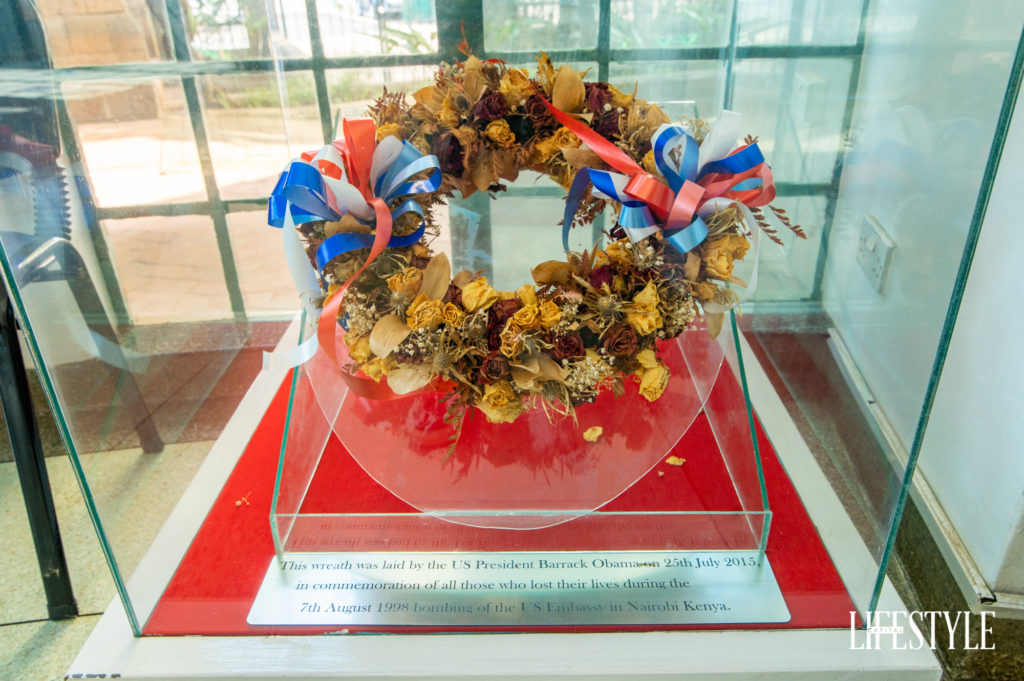

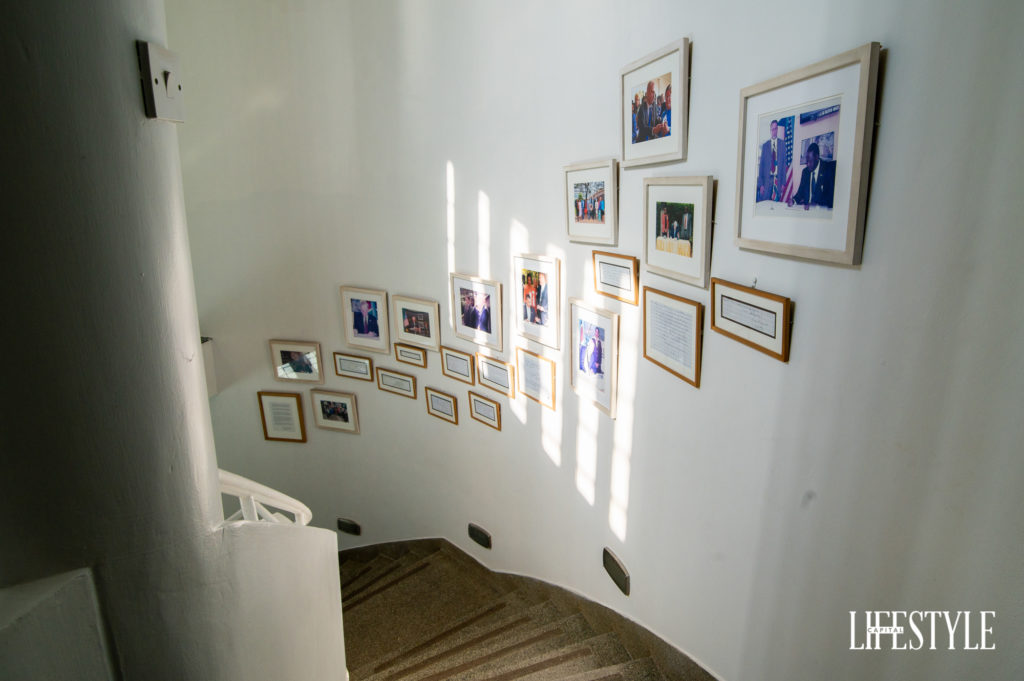

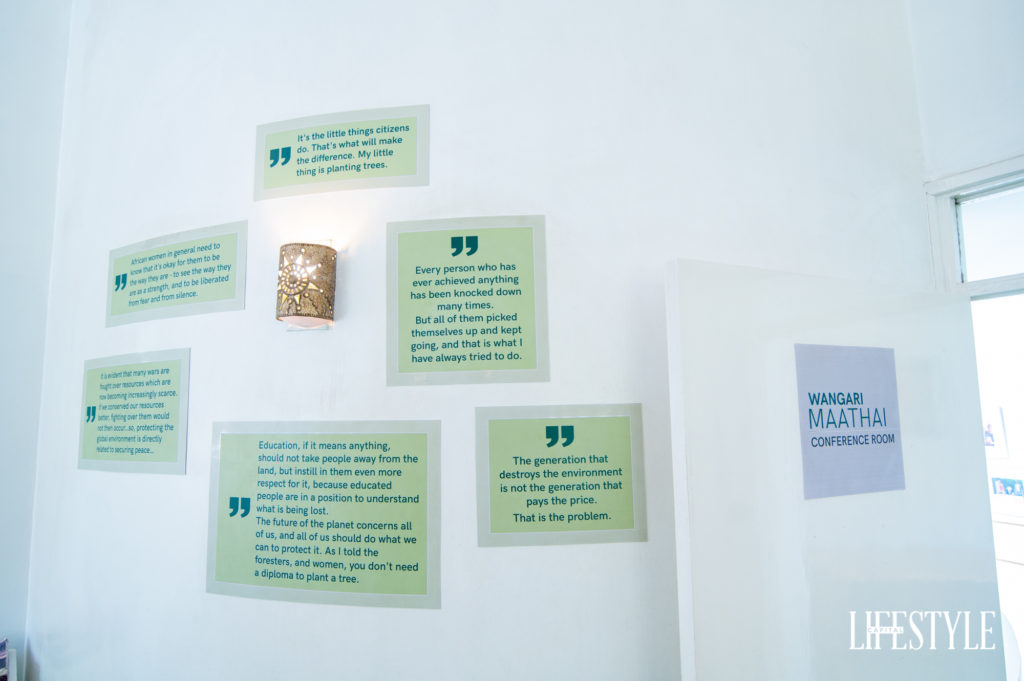

You walk in through the gates and right in front of you, is a lush garden with indigenous plants carefully selected from different plants of the country to signify that each Kenyan was affected by the blast, just like the rock beds that align the walk way, collected from different riverbeds in the country to signify the same. From the scent of the various flowers on sight to the joy of spotting familiar plants, mother nature here will nurture some inner calmness in you while you take a seat on the benches all around as you enjoy the views. The WHO says urban green spaces are essential to human well-being, both physically and emotionally. This means those living in cities with more parks and gardens have a better quality of life than those who live surrounded by high levels of pollution.

The fountain right in the middle of the park, made in the famous ying yang sign bubbles, is the symbol of calmness. Hearing and seeing the continuous, endless flowing of the water, is soothing, calming, and mesmerizing. On the other end of the park is a sculpture, made from debris from the blast in 1998. Together with the memorial wall, these structures are symbolic in that they commemorate the over 218 people who lost their lives in the blast. Their names are inscribed on the wall, a tribute of remembrance to each and every one of them, never to be forgotten.

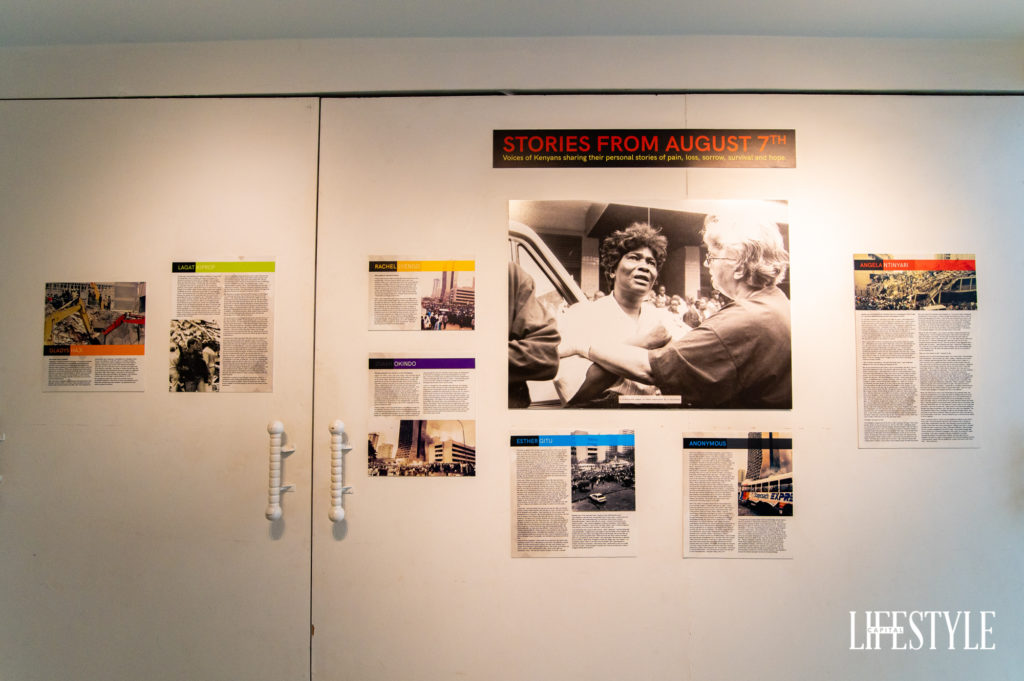


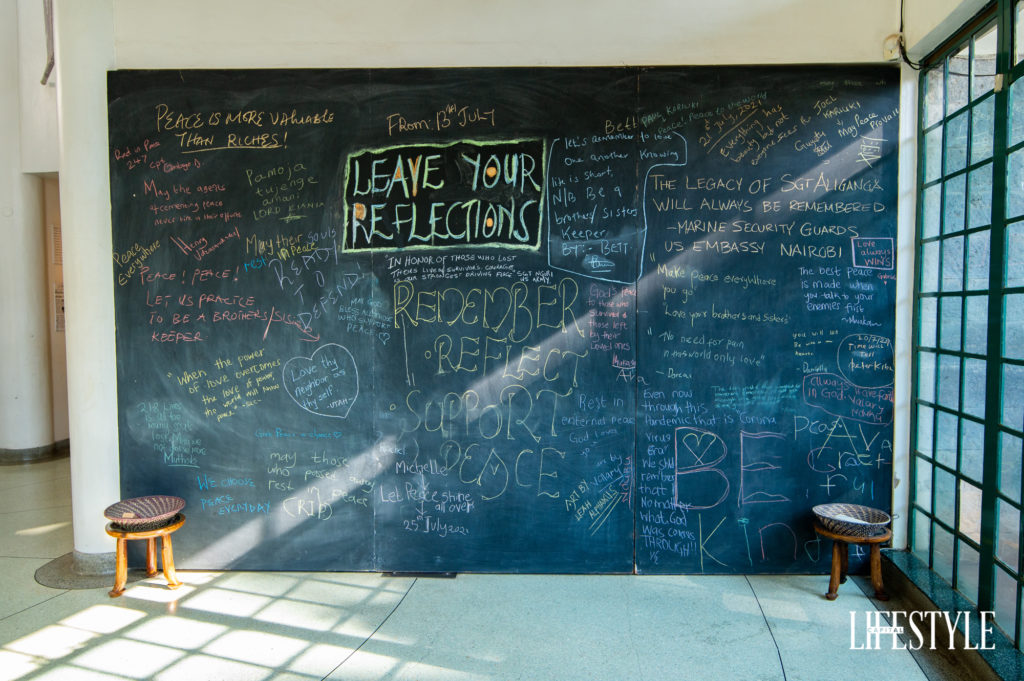



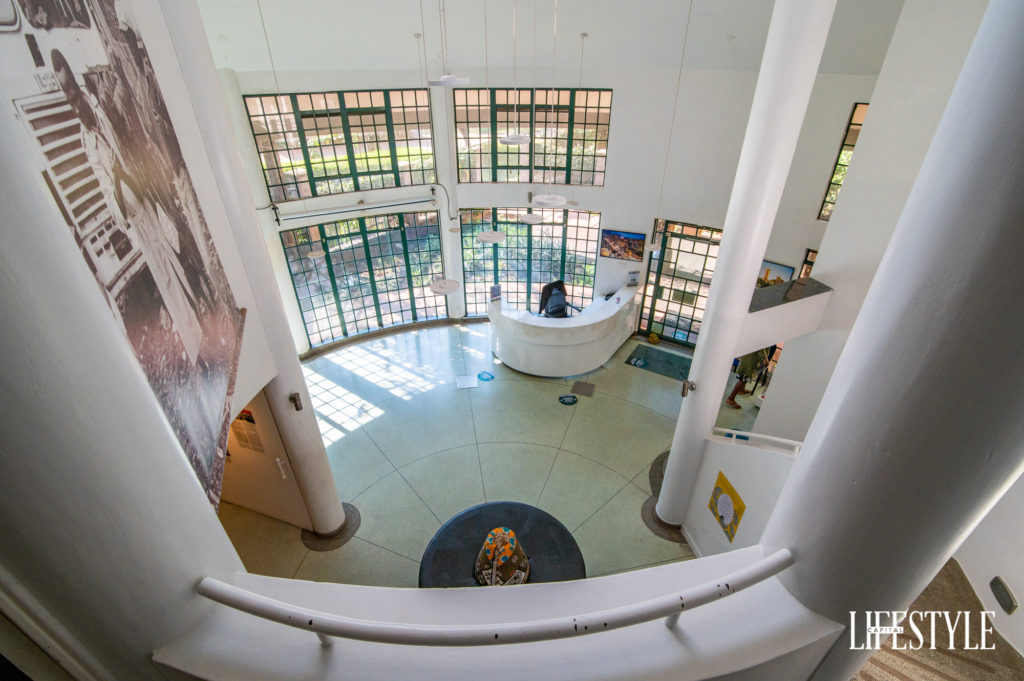

In order to not only stay open and keep functioning but also to protect this beautiful, important green space and memorial park for future generations, you and I need to come together to save the August 7th Memorial Park which is facing permanent closure. The Park relies on gate fee and occasional donor support which has dwindled over time and is not enough to keep it open. With as little as KES 100, we can save the park. Here’s how you can help keep the park open- Dial: *483*57*45570# or Paybill: 891300 Account: 45570 or simply logging onto https://secure.changa.co.ke/myweb/share/45570?fbclid=IwAR3qqBAF8SA5PKZzNaI2GDHiNjG3evjDhOaStiDVIZljQyxxllQe_inYNtI

(The August 7th Memorial Park is owned and managed by the August 7th Memorial Trust, a local non-profit organization, constituted of a group of volunteer trustees.)

